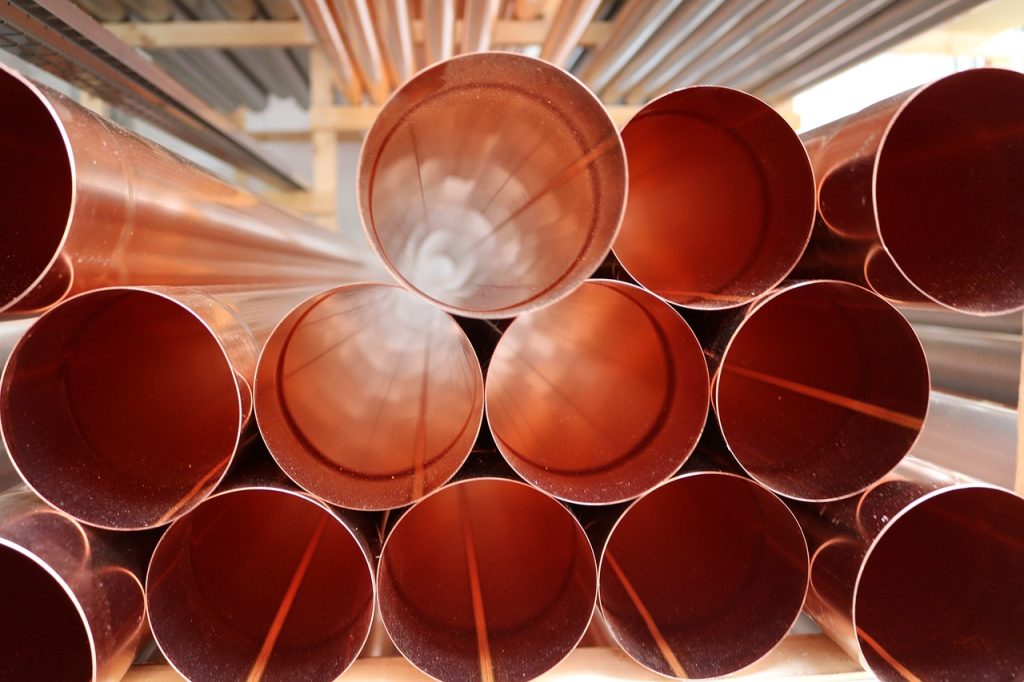Checking Out the Diverse Applications of Copper Products in Modern Industries
Copper products have developed themselves as crucial parts throughout a myriad of modern-day sectors, mainly due to their amazing conductivity, pliability, and resistance to deterioration. From enhancing the effectiveness of electrical systems to playing a vital function in renewable power technologies, the convenience of copper is noticeable. Its recyclability settings it as a lasting option in production and electronic devices. As industries progressively focus on innovation and sustainability, the diverse applications of copper require a closer assessment, specifically concerning their potential influence on future technological innovations and environmental methods.
Electrical Applications of Copper
Copper is a necessary material in the electrical sector, representing around 60% of the overall need for non-ferrous metals around the world - Copper Products. Its remarkable electric conductivity, which is almost twice that of light weight aluminum, makes it the preferred option for a variety of electric applications. From circuitry systems in household and business structures to high-voltage power transmission lines, copper ensures performance and reliability in electrical energy shipment
Along with circuitry, copper is integral to the manufacturing of electric elements such as transformers, generators, and motors. These parts utilize copper's thermal conductivity and malleability, essential for heat dissipation and reliable efficiency. Copper's resistance to rust enhances the lifespan and resilience of electric systems, making it an economical remedy in the lengthy term.
The development of renewable resource resources, such as solar and wind power, has further enhanced the demand for copper in electric applications. As sectors transition in the direction of lasting power services, copper's function comes to be a lot more essential. On the whole, the convenience and performance attributes of copper solidify its condition as a keystone product within the electric field, driving innovation and effectiveness across different applications.
Pipes and Piping Solutions
In modern-day plumbing systems, the option of products dramatically influences both performance and long life. Copper has emerged as a preferred option due to its special properties, including deterioration resistance and antimicrobial features. These attributes make sure that copper piping stays resilient and safe for carrying drinkable water, an essential consideration in property and industrial applications.
Among the essential benefits of copper in plumbing is its capability to hold up against heats and pressures, making it ideal for a selection of applications, from hot water systems to heating and cooling networks. Furthermore, copper's adaptability enables less complicated installation in intricate piping designs, minimizing the risk of failings and leakages.
Another noteworthy benefit is copper's lengthy lifespan, frequently exceeding half a century with correct maintenance. This longevity not only lessens replacement costs but additionally adds to sustainable techniques by lowering waste. Copper's recyclability lines up with modern environmental requirements, advertising a round economic climate within the plumbing sector.
Copper in Renewable Resource
The flexibility of copper extends beyond plumbing applications, playing a crucial role in the renewable energy market. Its excellent electric and thermal conductivity makes it an essential product in the production and distribution of eco-friendly energy sources, particularly solar and wind power. In photovoltaic panels, copper is utilized in solar batteries and circuitry, assisting in efficient energy conversion and transmission. Its resistance to rust guarantees long-lasting performance, which is crucial for making best use of power result gradually.

Additionally, as the global need for electric vehicles (EVs) increases, copper's function in battery systems and charging infrastructure becomes much more substantial. The product's ability to carry out electrical power effectively is important to the efficiency of EV batteries, improving range and charging speed.
Copper's Function in Electronics
Electronic devices producing counts greatly on copper's remarkable residential properties, especially its high electrical conductivity and thermal efficiency. These qualities make copper an ideal selection for a vast array of digital parts, including ports, motherboard, and electrical wiring. The metal's capacity to effectively send electric signals guarantees marginal energy loss, which is critical in high-performance digital tools.
Additionally, copper's thermal conductivity plays a substantial function in warmth dissipation, protecting sensitive elements from overheating. see This is specifically important in contemporary electronic devices, where compact designs lead to boosted warmth generation. Copper is likewise favored for its malleability and ductility, permitting it to be easily formed into complex designs that satisfy the needs of sophisticated digital applications.
With the rise of consumer electronics, telecoms, and electrical cars, the need for copper in the electronics field continues to expand. Thus, copper continues to be a keystone material in the ever-expanding field of electronic devices.
Innovative Uses in Production

One significant application remains in additive production, where copper-based products are utilized in 3D printing procedures. This allows for the creation of lightweight components and complicated geometries, especially in the aerospace and automotive fields. Furthermore, copper's thermal conductivity makes it a suitable choice for warmth exchangers, improving continue reading this efficiency in commercial cooling systems.
Moreover, the increase of wise production has seen the incorporation of copper in IoT devices, where its conductive capacities support sophisticated noticing technologies. In the realm of eco-friendly energy, copper is essential in the production of photovoltaic panels and wind generators, facilitating a lot more effective energy conversion and circulation.
As sectors aim for sustainability and advancement, copper's adaptability and performance continue to place it as an important product, driving developments in production and adding to the advancement of smarter, much more reliable items.
Verdict
The important role of copper in sustainable energy and its vital feature in electronics emphasize its value in progressing lasting practices. Collectively, these applications show copper's crucial payment to technological development and industrial performance in modern culture.
From boosting the performance of electric systems to playing an important function in sustainable energy innovations, the get redirected here adaptability of copper is obvious. As markets increasingly focus on development and sustainability, the varied applications of copper require a closer exam, especially regarding their potential effect on future environmental techniques and technical advancements.
The development of renewable power sources, such as solar and wind power, has better boosted the demand for copper in electric applications. On the whole, the adaptability and efficiency attributes of copper strengthen its status as a keystone product within the electrical market, driving innovation and performance across various applications.
The adaptability of copper expands past pipes applications, playing an important duty in the renewable energy field.